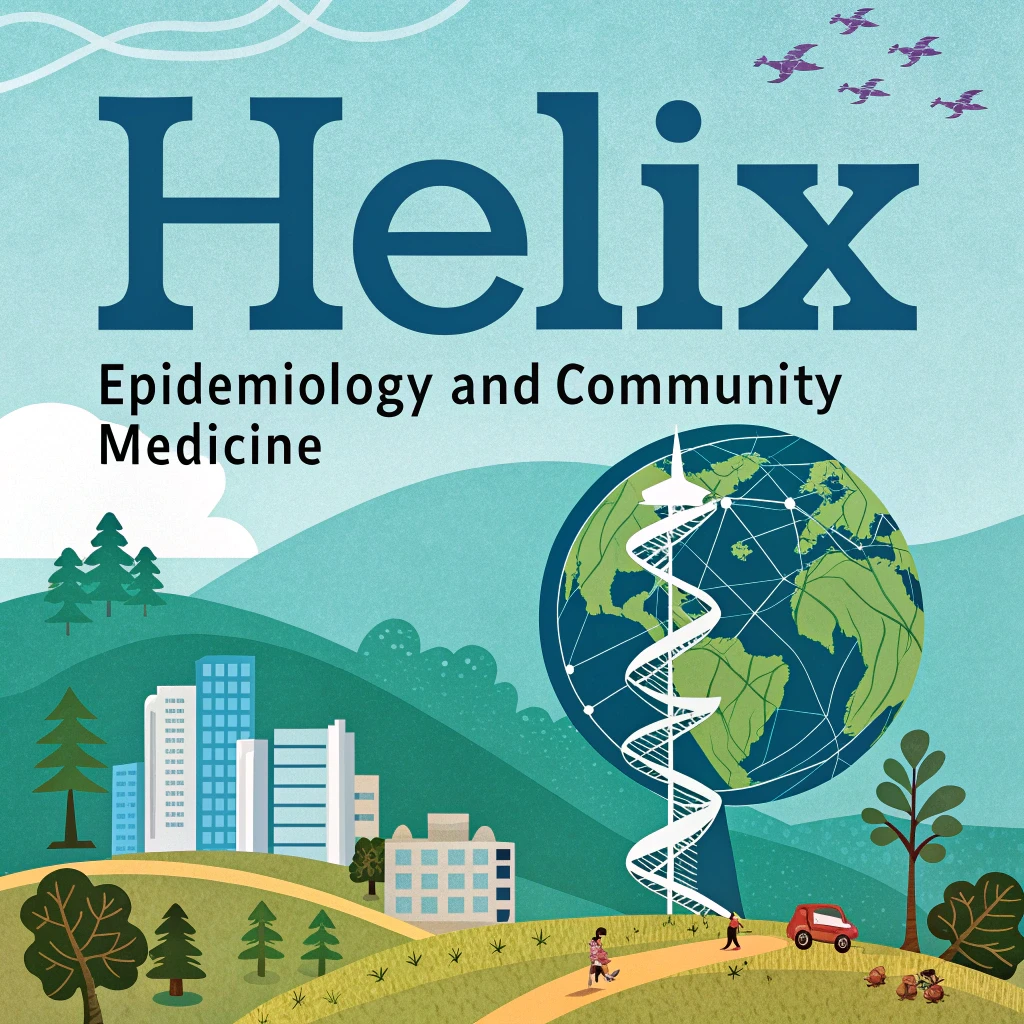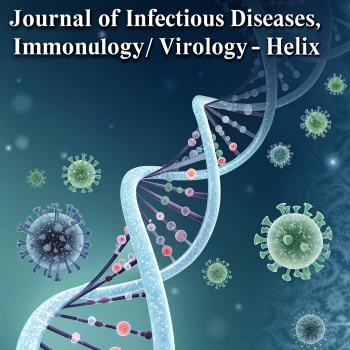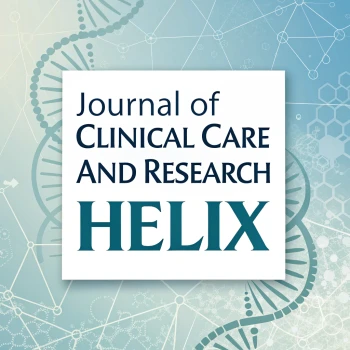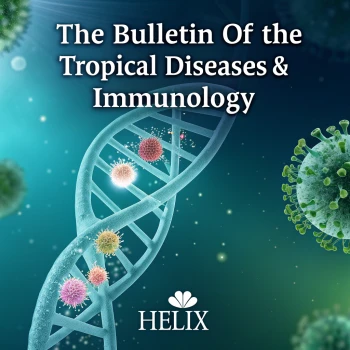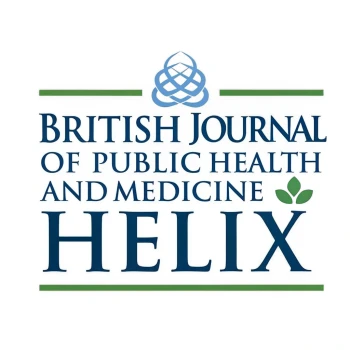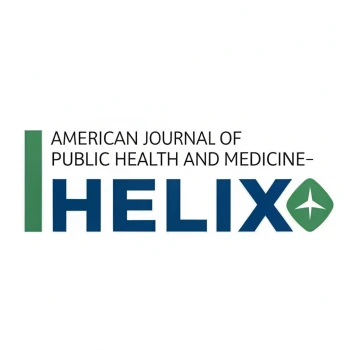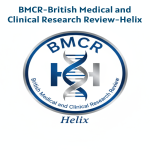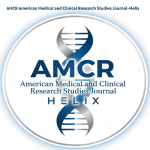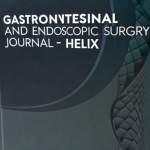Epidemiology and Community Medicine-Helix is a publication of Helix Health Science www.helixhealthscience.com contact@helixhealthscience.com
Understanding Epidemiology and Community Medicine: Insights from Helix Health Science
What is Epidemiology?
Epidemiology is the scientific discipline that examines the distribution and determinants of health-related states or events in specified populations. Originating from the Greek words "epi," meaning "upon," and "demos," referring to "people," epidemiology plays a crucial role in public health as it provides critical insights into the factors affecting health and disease prevalence within communities. By understanding how diseases spread and the factors that influence their occurrence, public health professionals can develop effective strategies to combat health issues.
The primary methods employed in epidemiological studies include observational studies and experimental designs. Observational studies, which encompass cohort, case-control, and cross-sectional studies, enable researchers to identify correlations between exposure and health outcomes without the need for intervention. Conversely, experimental studies, such as randomized controlled trials, involve manipulating exposure variables to observe effects on health. Each approach makes a significant contribution to understanding how various determinants, including genetics, environment, and lifestyle, influence health outcomes.
Epidemiology is intrinsically linked to several key concepts in public health, including incidence, prevalence, morbidity, and mortality rates. Incidence refers to the number of new cases of a disease in a specified period, while prevalence indicates the total number of existing cases at a given time. Morbidity refers to the presence of illness, while mortality pertains to death rates. These metrics are vital as they inform healthcare professionals about the burden of disease in a population, aiding in the allocation of resources and formulation of policies.
The significance of epidemiological studies extends beyond academic curiosity; they are essential in shaping healthcare policies and intervention strategies. By identifying risk factors and trends, such studies can lead to the development of targeted public health campaigns, healthcare programs, and ultimately, a healthier population. Through a comprehensive understanding of epidemiology, public health officials can make informed decisions that protect and promote the well-being of communities.
The Role of Community Medicine
Community medicine is a vital branch of public health that prioritizes the well-being of populations. Its primary focus is on the prevention of diseases and the promotion of health within communities, recognizing that individual health is inextricably linked to broader social, economic, and environmental factors. Unlike traditional clinical practices that typically center on individual patient care, community medicine emphasizes a holistic approach, addressing health issues at the community level.
One of the core tenets of community medicine is the engagement of community members in health initiatives. By fostering partnerships among healthcare providers, local organizations, and residents, community medicine creates a collaborative environment where health education, resources, and preventative measures can be effectively disseminated. Programs aimed at immunization, maternal and child health, and chronic disease management often rely on community involvement to achieve optimal outcomes. This symbiotic relationship ensures that health interventions are culturally appropriate and respond to the unique needs of the community.
Moreover, community health initiatives often utilize data-driven approaches to identify specific health concerns within a population. This allows for targeted interventions, such as screening programs tailored to address prevalent diseases, thus optimizing resource allocation and improving health outcomes. For instance, the implementation of community-led wellness programs can significantly reduce the incidence of lifestyle-related conditions, such as diabetes and hypertension.
In essence, community medicine serves as a crucial bridge connecting healthcare systems and the communities they serve. By emphasizing prevention, education, and collaboration, it aims to create healthier environments, ultimately reducing the burden of disease and enhancing the quality of life for all residents. With its focus on group dynamics and social determinants of health, community medicine is not only pivotal in fostering health equity but also in building resilient communities capable of addressing future public health challenges.
The Intersection of Epidemiology and Community Medicine
Epidemiology and community medicine are intrinsically linked fields that together form a comprehensive approach to public health. Epidemiology, the study of the distribution and determinants of health-related events, provides critical data that informs community medicine, which focuses on the delivery of health services to communities. By understanding the factors influencing health within populations, public health professionals can implement targeted interventions that address specific health issues prevalent in different communities.
The integration of epidemiological data into community health programs is pivotal. For instance, data collected during epidemiological studies can reveal trends in disease outbreaks, enabling health authorities to allocate resources effectively. By identifying high-risk populations, community medicine practitioners can direct interventions where they are needed the most. This targeted approach ensures that public health initiatives are not only effective but also equitable, addressing health disparities that exist within community settings.
Numerous successful public health initiatives exemplify the synergistic relationship between these two disciplines. One notable example is the vaccination campaigns for measles and rubella in low-income countries. Epidemiological data indicated that certain regions had significantly lower vaccination rates, leading to outbreaks of these preventable diseases. In response, community medicine teams collaborated with local health authorities to launch modified immunization programs that provided vaccines in clinics and schools. The outcome was a remarkable increase in vaccination coverage, effectively reducing the incidence of these diseases.
Furthermore, the COVID-19 pandemic epitomizes this intersectional approach. Epidemiologists tracked virus spread and vaccination uptake, while community medicine practitioners engaged in public awareness campaigns, addressing concerns and ensuring equitable access to vaccines. This collaboration illustrates how the dynamic interplay between epidemiology and community medicine can enhance health outcomes and promote health equity within communities.
Helix Health Science: A Resource for Advancing Public Health
Helix Health Science stands out as an invaluable platform dedicated to enhancing public health by providing comprehensive resources in the fields of epidemiology and community medicine. This initiative is committed to bridging the gap between healthcare professionals and the general public, facilitating a deeper understanding of health dynamics within communities. The foundation of Helix Health Science consists of an extensive array of publications that cover various topics related to public health, epidemiological studies, and community health initiatives.
The platform features peer-reviewed articles, case studies, and reports that delve into different facets of disease prevention, health promotion, and healthcare practices. By disseminating quality research contributions, Helix Health Science aims to inform and equip professionals with the latest findings, methodologies, and innovative approaches in public health. This scholarly exchange not only underscores the importance of evidence-based practices but also empowers communities to adopt healthful behaviors grounded in reliable research.
In addition to publications, Helix Health Science offers a range of educational resources designed for varied audiences. These resources include webinars, workshops, and training programs aimed at fostering skills and knowledge among healthcare practitioners and those interested in community health. Furthermore, Helix Health Science encourages interaction and open dialogue, inviting readers to engage with their content through feedback, collaboration opportunities, and inquiries related to public health matters. This inclusive approach fosters a community of learners and practitioners committed to improving health outcomes.
As we seek to advance public health, platforms like Helix Health Science play a crucial role by providing essential resources, fostering collaboration, and promoting continual learning in epidemiology and community medicine. Their dedication to creating a dialogue environment ensures that everyone is informed and engaged in the important work of improving community health.

